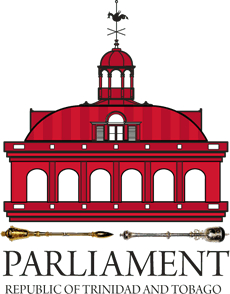DNA DATABANK TO COME SOON….
The House of Representatives began debate on The Administration of Justice (Deoxyribonucleic Acid) Bill, 2011 on Wednesday November 09, 2011. This Bill will contravene several of our basic constitutional rights and therefore requires a three-fifths majority of votes to be passed.
The full text of the Bill is available on this website. You may also place your comments directly on this Bill page, which can be accessed here.
The following is a brief explanation of some aspects of the Bill
What is DNA?
The acronym DNA stands for Deoxyribonucleic Acid. DNA is present in all human cells and contains a genetic code unique to each individual. DNA profiling, also known as ‘genetic fingerprinting’, is a scientific technique for the analysis of blood or other tissue samples. It is therefore a very precise method of ascertaining identity and is akin to fingerprinting.
Purpose of DNA
DNA technology is increasingly vital to ensuring accuracy and fairness in the administration of justice and is generally used to solve crimes in the following ways:
- In cases where a suspect is identified, a sample of that person’s DNA can be compared to evidence from the crime scene. The results of this comparison, along with other evidence, may help establish whether the suspect committed the crime.
- In cases where a suspect has not yet been identified, biological evidence from the crime scene can be examined and compared to profiles in DNA databases to help identify the perpetrator.
- DNA can also be used in the identification of unidentified human remains or the resolution of missing person cases.
- DNA can be utilized to exonerate persons mistakenly accused or convicted of crimes.
- There is also the increased possibility of solving unresolved crimes by linking suspects, accused or detainees to past crimes through DNA.
How will samples be collected?
Through the following methods:
- non-intimate –
- a sample of blood can be obtained by a prick of the finger,
- swabbing of the inside of the mouth against the cheek
- hair (living hair complete with the hair root)
- intimate sample –
- a specimen of biological or other material taken from a person’s genitals
- Person’s bodily orifice other than the mouth (any external opening of the body for example- the ears, eyes, anus, urethra etc.)
What are the key features of this proposed legislation?
- Provides for the creation of a National Forensic DNA Databank.
- Expansion of the powers of police officers to take a sample of DNA without the consent of the following category of persons:
- Suspect
- Detainee
- Accused
- Person who attends a crime scene
- Deportees
- Persons who in the opinion of the Minister responsible for National Security may be a threat to national security
- Allows a qualified person to take a non-intimate sampling of DNA without the consent from a person who is
- Admitted to the hospital
- Suspected
- Accused
- Convicted of an offence
- Incapable under the Mental Health Act
- Minors from Juvenile Residential Facilities
- Detainees detained under the Immigration Act
- an Applicant for, or the holder of a licence, certificate or permit under the Firearms Act
- Person employed or assigned duties at the Trinidad and Tobago Forensic Science Centre
- Allows for investigating officers to resolve a case through DNA evidence.
- Creates the post of Custodian and Deputy Custodian of the Forensic DNA Databank and permits the Custodian to carry out the following duties such as:
- Maintenance of the Forensic DNA Databank through adequate staffing and funding by the Government of Trinidad and Tobago
- Conducting searches in the Forensic DNA Databank
- Securing storage of DNA
- Ensuring confidentiality
- Performance of other duties as delegated
Important issues for consideration:
- Legislation will be inconsistent with sections 4 and 5 of the Constitution.
- Overall cost of implementing a DNA Databank.
- Has the Trinidad and Tobago Forensic Science Centre received Laboratory Accreditation from an International Body to ensure that the management, personnel, procedures, instruments, physical plant, security and personnel safety procedures of the laboratory meet the required standards of a recognized accreditation body?
- Is the Forensic Science Centre equipped to handle the increasing influx of DNA samples and evidence that will result from the passage of this legislation? The problems of backlogs and lack of up-to-date technology will likely result in significant delays in the administration of justice?
- The Custodians and Deputy Custodians are appointed under the discretion of the relevant Minister.
- What are the criteria for accessing DNA information via the Databank?
- Corresponding upgrades to infrastructure at police stations will be essential to ensure the proper storage and preservation of DNA evidence collected.
- Police officers should be able to identify, collect and preserve probative biological evidence for submission to crime laboratories. Improper collection can mean that valuable evidence is missed or rendered unsuitable for testing. Will special training be required for persons authorized to take samples to avoid:
- Cross-contamination when obtaining DNA samples
- Erroneous lab report
- Self-contamination
- Error during testing
- Error in DNA test interpretation
- Error in testing procedure
- Mandatory provision for all persons employed or applying for employment as an officer of the Protective Services to provide a DNA sample.
- Section 19 (2) requirement for intimate sampling to be taken without consent from sexually offended victims.
- Section 23 empowers an authorized person to use “reasonable force” to obtain a sample.
- Samples will be retained for a minimum of ten years, but thereafter samples may be retained indefinitely at the discretion of the Forensic Science Centre.
- Although Section 13(1) empowers a police officer to compel a “suspect” to give a sample, there is no definition of “suspect” in the legislation.
- Power of the police to arrest without warrant in accordance with Section 14 (4), Section 16(1) and Section 17(7)
